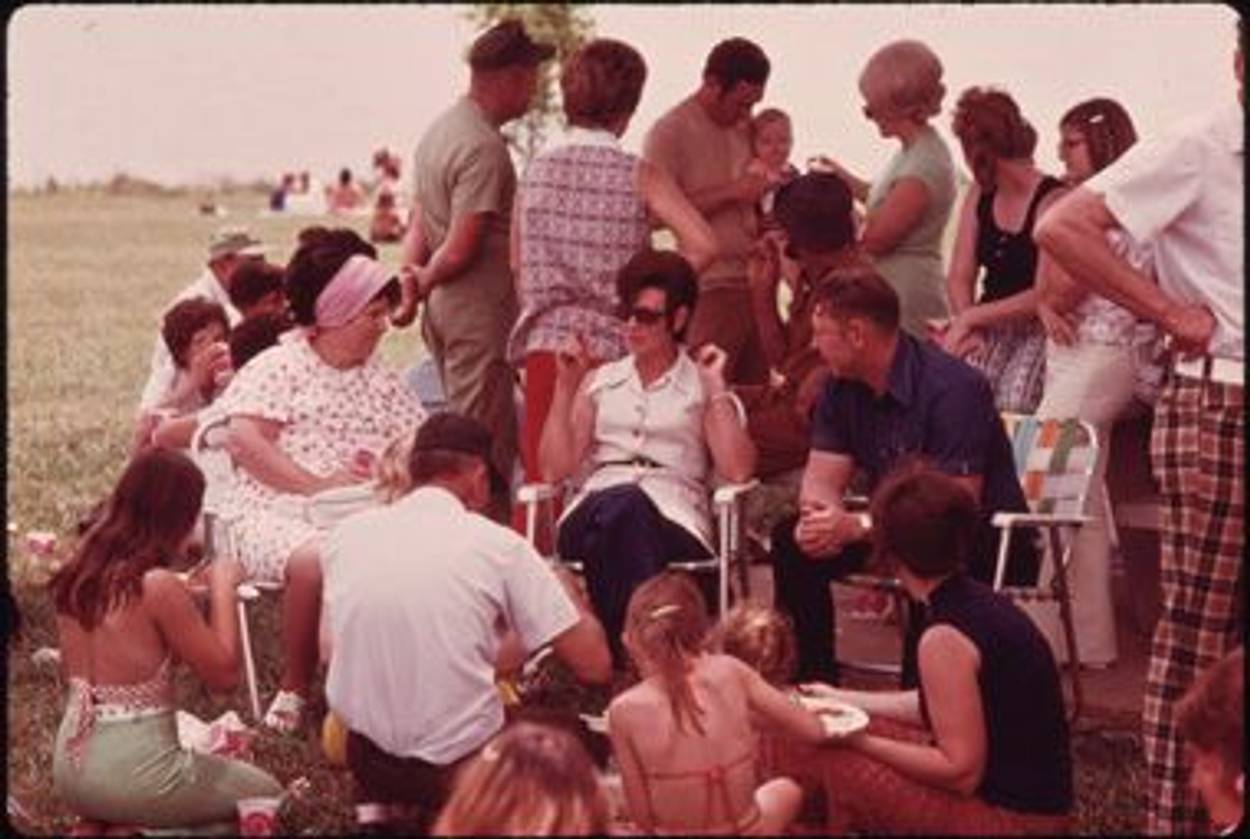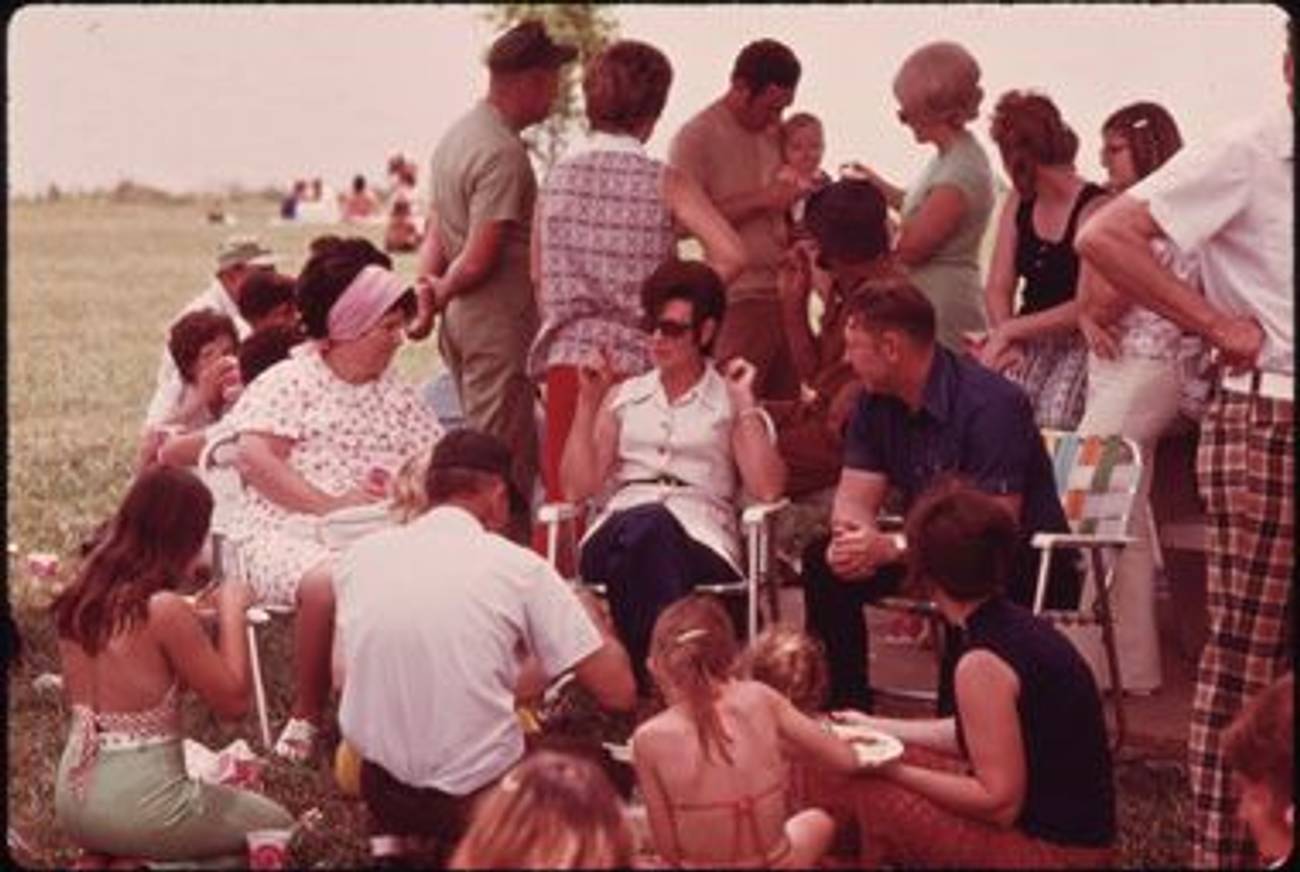Mistaken Identity
My mother pretended we weren’t Jewish when we moved to the South—but couldn’t resist kvelling over my book about it




Because I am a Jew, and a New York Jew at that, and because I am furthermore employed in publishing, I am, as is well known, bound by tradition and perhaps even natural law to sign a book deal. And so I have. It’s a rather pleasant thing to do, entering into a writing contract, despite the mental labor required to produce a book (I grow weary even now as I think of it). I do, however, work for a monthly magazine at which several colleagues have either written a book, are currently writing one, or are mulling the idea of it. I am therefore expected to behave as though securing a publishing deal is a good, but not overly momentous, event. In this regard I have undoubtedly failed to uphold the standards of my industry. I talk incessantly of my project, to all and anyone foolish enough to listen. And my literary self-commendation is not limited to work fellows: My girlfriend hears much of my project, as does my 4-year-old boy, my ex-wife, both of our divorce attorneys, my neighbor, my college friends, the folks who only hear from me via social media, my cheesemonger, close and distant relatives, and yes, my dog, Frankie.
One person I am rather loath to discuss it with is my mother. I know it would provide her with that sweet satisfaction of bragging about my success: my son the writer, she might say to someone, apropos of nothing; or, my son’s agent says, she might tell the man who mows her lawn; or, to her mother-in-law, Ted hasn’t called in three weeks because he’s on deadline. I don’t do it largely because she is the inspiration for the work.
When I was a child my mother moved with my brother and me from New York City to a small town in Mississippi. She had divorced my father, and, after struggling for some time to establish herself as a doctor in Manhattan, she had accepted an offer by a local hospital to start a private practice. Once there, she made what proved to be a key decision in my life: She forced my brother and me to keep our Judaism secret. She enrolled us in the Christ Episcopal Day School, where the curriculum included study of the Bible, weekly church attendance, and the recitation each morning, after the Pledge of Allegiance, of the Lord’s Prayer. For the years of my childhood, until I moved back to New York as a teenager to live with my father, I lived a minor sort of double life: fake Christian in Mississippi and secular Jew in Manhattan, where I returned for holidays and summer break. My mother’s reasons for doing this were complex, and I don’t know even today if I understand them fully, but I presume that she felt that her peers would reject her because she was a Jew. Of the many things our Bible Belt town might accept, my mother reasoned, Judaism was not among them.
My mother remarried when I was 14, to a Catholic man, and they chose to convert to Episcopalianism before the wedding. There was no discussion of my converting or participating in her new religion at all. Judaism became something we didn’t discuss, and I didn’t really think about it all that much. Children are eminently adaptable, and it wasn’t until much later that I began to reckon with this episode in my childhood. My stepfather, for his part, knew that my mother was Jewish, but his rather conservative family didn’t (my stepfather moved in with us before they got married, and his parents were upset by his “living in sin”), nor did my mother’s employees, her colleagues at the hospitals, or her friends. My stepfather is a good man; he didn’t care about our religion—converting was my mother’s idea, not his, and the move signified a social change, the spiritual equivalent of joining the right country club. The secrecy about our Jewish origins, of course, had to be maintained for two reasons: First, my mother was still convinced that she would face discrimination for her past; and second, it was impossible to go back on the lies. Also, there never seemed to be any reason to undo the prevarications—her religious past was a topic that simply didn’t come up. In recent years, however, as some of my writing has turned to Jewish topics, I have warned my mother that I would be disclosing considerable personal information, and that she should take care not to discuss my writing career with people she knows down south.
Then this summer I traveled to Mississippi with my son for a vacation. My mother hosted a barbecue for about 25 friends and relatives, none of whom, I thought, knew anything about my book. How could they? For my mother to tell them would mean disclosing the truth after 20 years of concealing it. Worse yet, what would it say about them? My mother had hidden her Judaism because she believed, at least on some level, that they were bigots unable to accept a Jew in their midst. I never imagined my mother would choose to expose herself.
Yet over dinner, an old friend congratulated me on my publishing deal. Reed is old-school Southern in the way you generally imagine from the movies: gregarious, unfailingly polite, handy with a pot of gumbo.
“Quite an achievement there, Ted,” he said, drawling an “a” into my name (Taed), as Southerners tend to do. I struggled not to choke on my ribs. His wife, Susan, a Texan, agreed, as did the rest of the folks at the table, each murmuring their best wishes.
I turned to stare at my mother, who was also at the table. She returned my look with a vague smile that did nothing to communicate the direction in which I should take the conversation.
Ever humble, I replied, “Yes, it is.”
“Now, maybe you can tell me what it’s about,” Reed said.
Again, I hadn’t imagined that my mother had shared my news with them. That would be foolish. But if she had, I could only assume that she had told them what the book was about. How do you tell a person about a book without telling them about the book? Southern manners helped, I suspect. My mother didn’t mention the subject, and they were simply too polite to inquire. But with me it would actually be rude not to ask.
A long moment passed as I blinked vacantly and tried to organize my thoughts. I decided to hedge.
“Well, Reed, I guess you can say it will be about eccentric Jews”—more glaring from me at my mother—“and, you know, communities of odd Jews, kinda, writing about them, that sort of thing, their practices, I don’t know, identity?”
Seen from the outside, this was, I knew, hilarious—a table full of people all trying to parse what the hell all that blather meant, their congitive wheels slowly squeaking along, while I, too, gamely tried to determine what to say next.
“But you’re not a Jew, are you,” Susan asked. (The working title of my book is: Am I a Jew? There are times I am convinced I am living in a sitcom.)
“Well, actually, I am.”
“But your mother isn’t?”
“Is that what she told you?”
“Yes, when we read your earlier articles”—another surprise! Apparently my mother had been going through the process of not keeping her mouth shut for some time—“we asked her and she said no.” This was technically true, but certainly misleading.
Despite my discomfort, both at having to cross my mother in public and being placed in a position where I couldn’t be fully honest, I remember feeling great affection for her at that moment. Here was this crazy woman, this mother, who had moved her family to the Bible Belt and built a life founded on a falsehood. I imagined that she knew there were real things at stake for her if the old inventions were revealed—no one likes being lied to. Yet she loved me enough, had taken enough pleasure in my achievement, to risk it. I kept silently repeating to myself: She’s a Jewish mom. She can’t help herself.
I should explain more of what I mean when I write about these things as inherently Jewish. It would be easy enough in reference to my mother to replace Jewish with Italian, or African-American, or Armenian, or Martian, or just mother. I use the term not because I believe there is something unique to the Jewish maternal instinct. What mother isn’t happy when her child finds a measure of success, even if enjoying that success takes something from her? Jewish mom, in this instance, is merely an idiom for a type of inclusion that I missed out on when I was young. I didn’t have a Jewish mom as a kid, not one that anyone knew about but me. I’m well aware that in claiming these clichés I am relying on shorthand, a lazy kind of cultural in-notation, built on stereotypes. But surrounded by people who didn’t know me in this context, and who may not know any Jews in any context, I feel entitled to insist on the Jewish specificity of my mother’s reaction.
I managed to offer a very limited answer, something about my father being Jewish but not my mother (technically true, as my mother converted), and the conversation moved on, thankfully. I had protected her to the extent that I could. (Such a mensch!) But I also believe my mother was signaling to me that in the future she didn’t need or want to be protected anymore, at least not by me. Her obligations as mother, Jewish or otherwise, compelled her to let me say what I felt needed to be said.
Theodore Ross, the author of the memoir Am I a Jew?, has written for the New York Times, Harper’s Magazine, the Oxford American, and other publications.